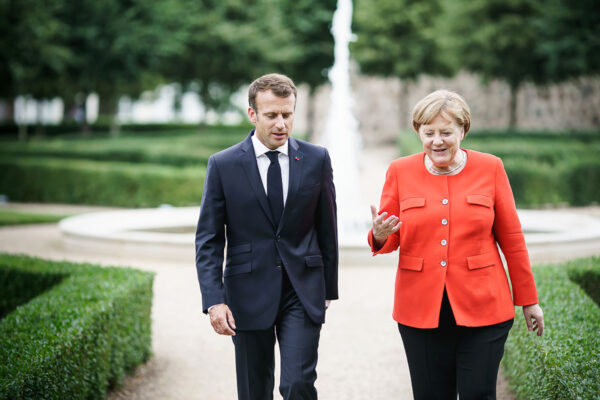
German chancellor Angela Merkel has met many of French president Emmanuel Macron’s demands for eurozone reform during a meeting in Meseberg outside Berlin.
What Macron got
- A eurozone budget, separate from the EU’s, funded with permanent tax resources and designed to help economies converge and become more competitive.
- Converting the eurozone rescue fund, the European Stability Mechanism, into something of a European Monetary Fund. It would be able to provide emergency loans to countries facing an economic downturn.
- Expanding Frontex, Europe’s border control, into a European asylum office with 10,000 more employees. Harmonizing asylum rules across the EU.
- Reducing the number of European commissioners from the current 28.
- Creating a European agency for artificial intelligence.
EU countries have already agreed to deepen military cooperation outside NATO. Macron and Merkel reaffirmed that commitment on Tuesday.
What Macron didn’t get
- Harmonizing corporate tax rates in the EU. Germany is open to this. Low-tax countries like Ireland and the Netherlands are not.
- Harmonizing social security regimes. This would make it much easier for Europeans to work in different countries, but implementation is horribly complex.
- Overhauling the EU’s agricultural policy. The fact that France has opened the door to this is significant, but this needs to be fought out in the context of the next EU-wide budget.
What about the rest?
A Franco-German pact is hard for other euro states to circumvent, but the currency union is not a two-headed monarchy. There are seventeen other countries that want to weigh in.
- Germany’s allies in the north — Austria, Finland, the Netherlands, the Baltic states — fear “transfer union”: the permanent subsidization of weak member states in the south. Whether or not they can accept a eurozone budget will depend on how it would be funded, how large it would be and what it could spend on.
- On asylum, the biggest obstacles are Hungary and Poland, who fear a single European immigration policy could force them to take in more refugees.
- Shrinking the European Commission will not be popular with any of the small member states.
What’s next?
- There is a meeting of European finance ministers on Thursday, followed by a summit of national leaders on June 28-29. We’ll learn more then.
